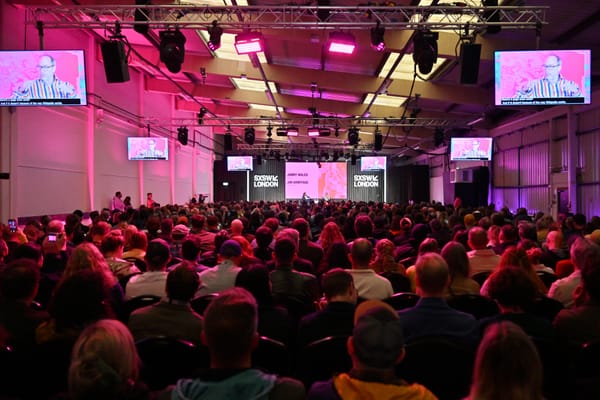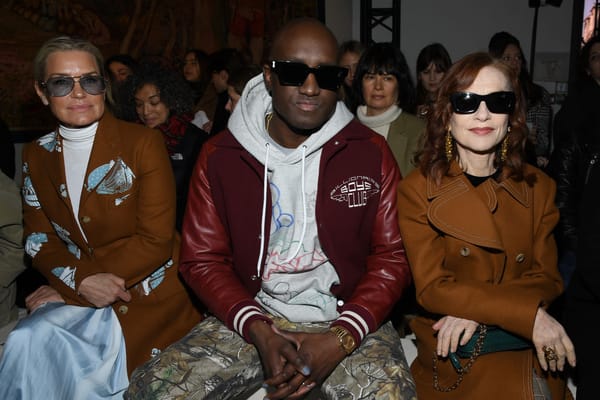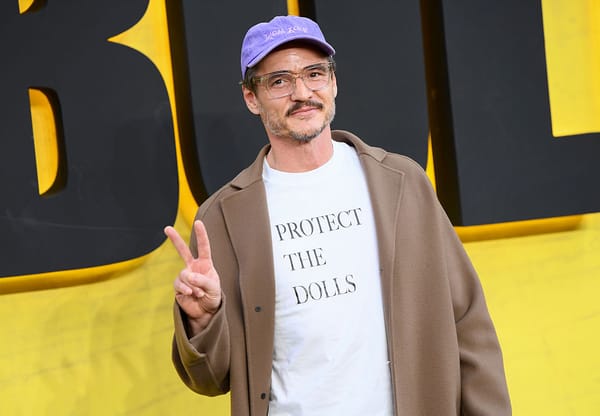What's the deal with DEI?

Gen Z still cares about it, even if brand budgets don't
Diversity, Equity and Inclusion. Three words we have heard a lot of in the past five years. But what makes a brand genuinely diverse, and how should we move forward in the current climate? Do young people even care about DEI initiatives?
This week at Dazed Studio, we look at what the deal is with DEI.
The Conversations for Change Summit
A couple of weeks ago, our Group Brand Strategy Director, Izzy Farmiloe, and Dazed’s Culture Editor, Halima Jibril, came together for the inaugural Conversations for Change Summit, hosted by the Minority Report Group at Tate Britain. Their panel talk gave a snapshot of how business really handles DEI, what young people value, and actions we can take to move DEI forward from rhetoric to action.
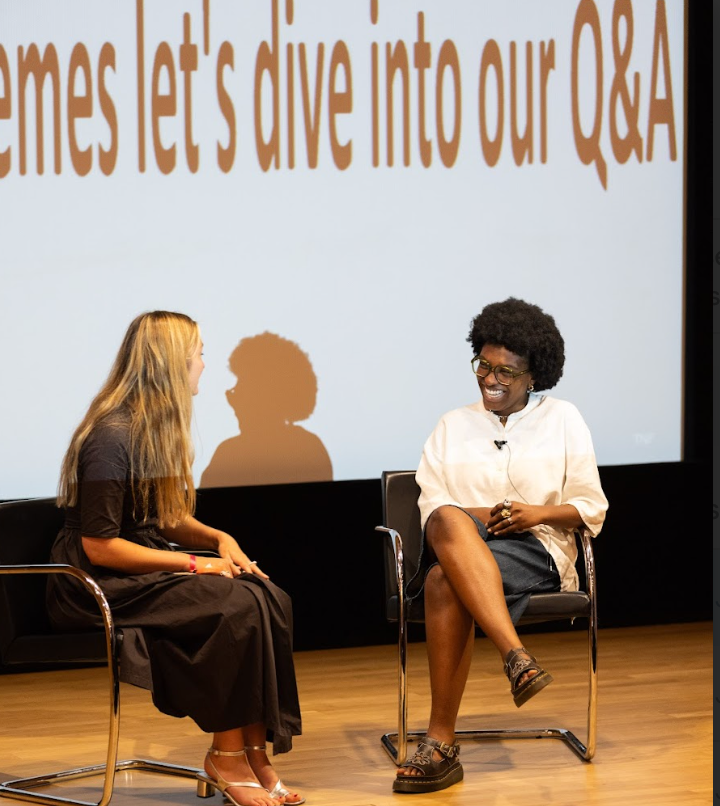
The DEI download: Where we’re at
It’s 2025; we are in a post-woke era. As the political chasm between generations - and even within generations - increases, diversity matters.
Large, multinational companies are rolling back their DEI commitments, a trend which began in the U.S. in 2023, following Supreme Court rulings limiting affirmative action. New executive orders from President Donald Trump have ended DEI funding for government agencies and influenced private sector policies.

Is Gen Z over it? In short, no
The “Say-Do” Gap
Companies are aware they need to partake in DEI rhetoric - from changing their logos to Pride flag colours in June, to spotlighting Women’s History Month in March and Black History Month in October. However, many view these messages as mere “wokewashing”.
There is a big gap between what companies say and what they do: 99% of FTSE 100 companies have DEI mission statements, but just 48% run more than one meaningful DEI initiative; only 4% support neurodiversity (Management Today). We can feel this lack of sincerity is true - about 70% of all workers believe DEI is treated as an afterthought and isn’t genuinely prioritised. Instead, visibility triumphs over substance.
The myth of DEI fatigue
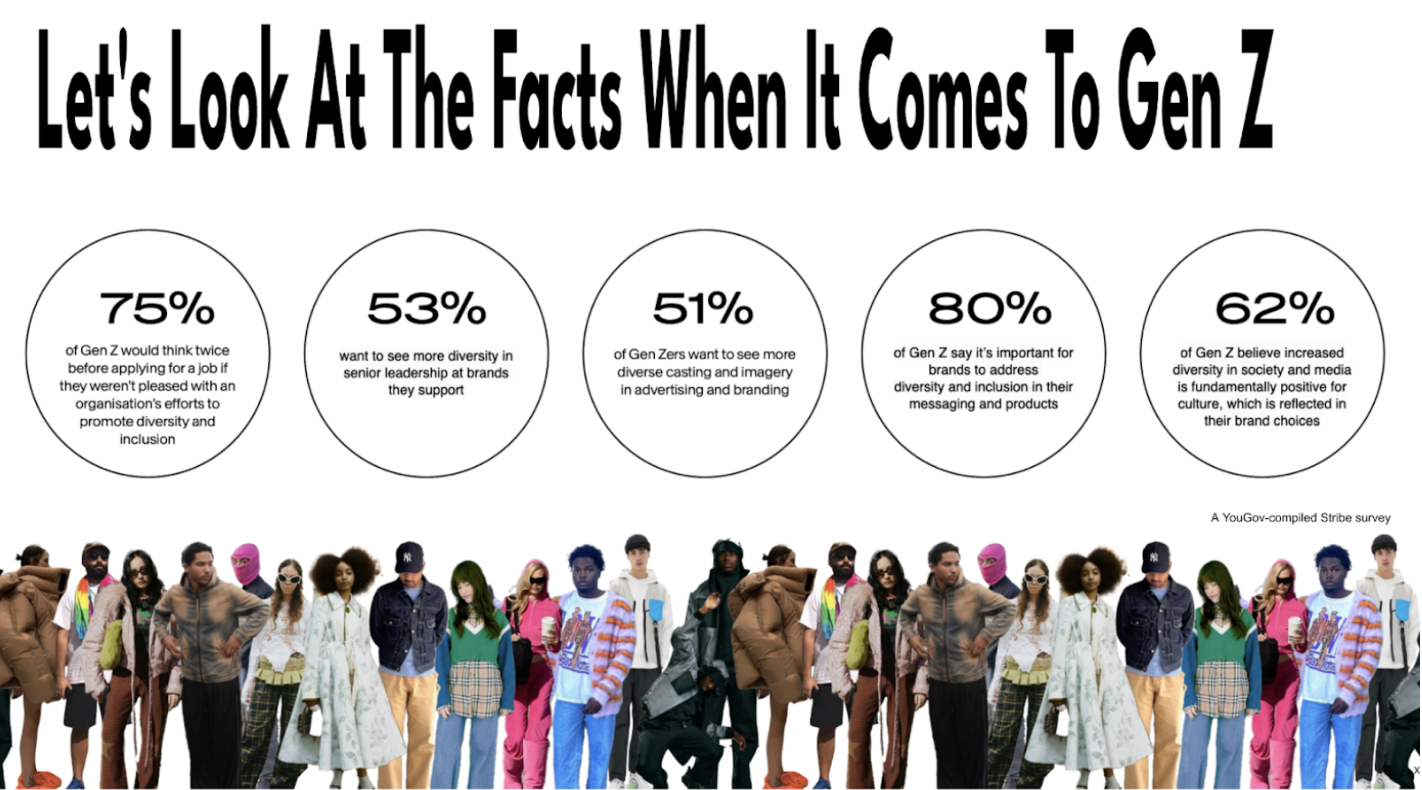
Our primary research demonstrates that Gen Z do actually care about diversity as a social cause.
We asked our 2025 respondents “What causes are you most passionate about right now?” They responded:
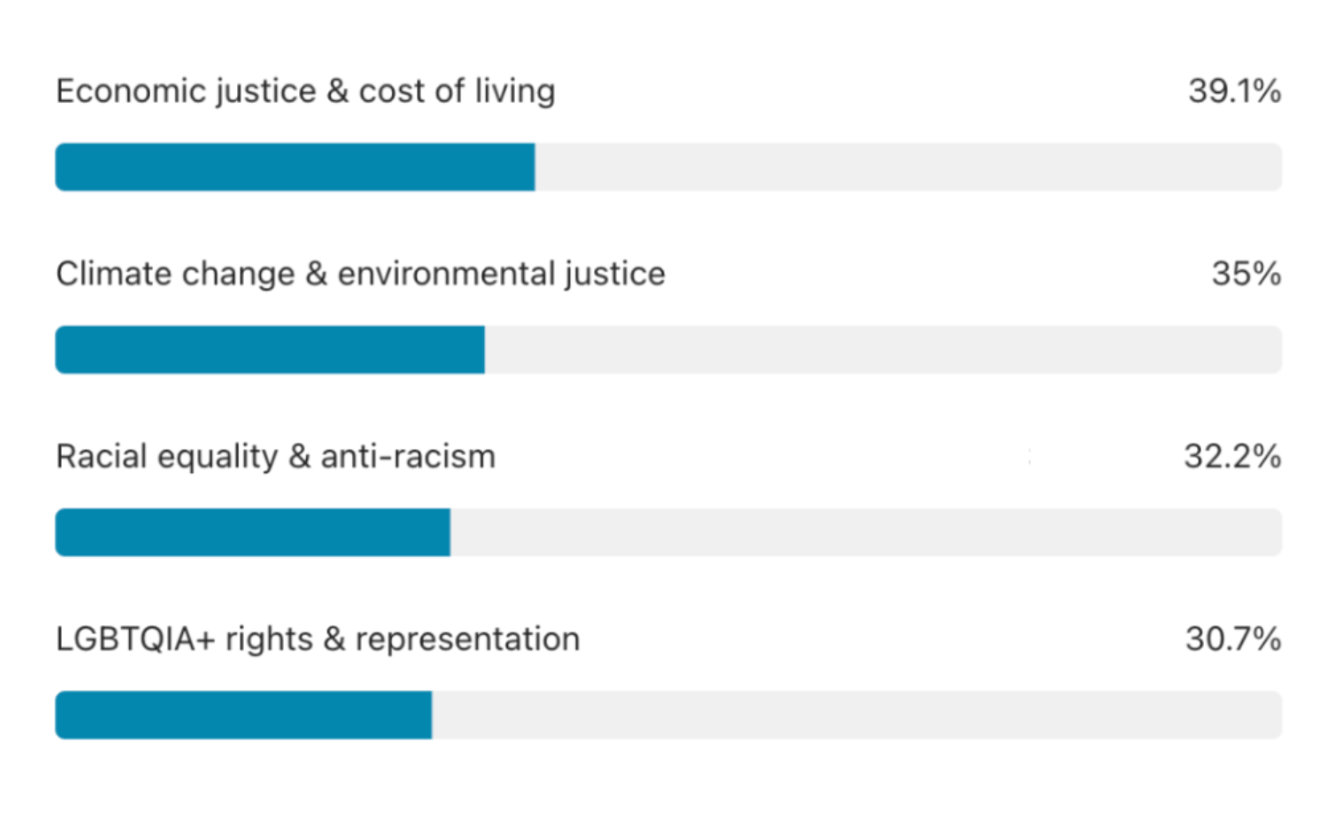
“Freedom of speech, freedom of movement is a cause I’m most passionate about right now.”
- Dazed Survey Respondent, 2025
This thirst for intersectionality isn't new - our 2023 report uncovered similar motivations:
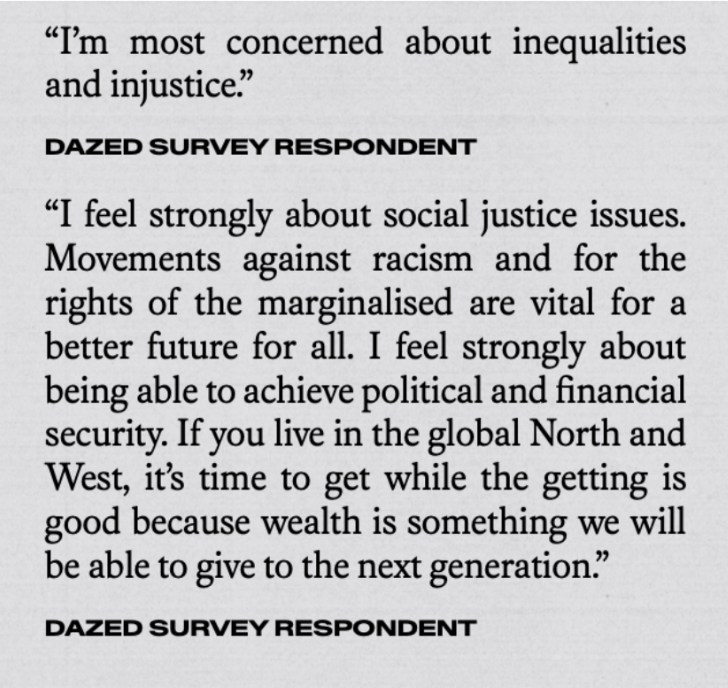
How can brands meaningfully engage with DEI?
A need for empathy
We need greater empathy from those who may not share these lived experiences, often people who don’t carry the same systemic burdens.
Build genuine partnerships
In order to fully understand the lived experience of those under systemic oppression, brands should engage with key figures within social justice movements and organisations.
Dazed partners with communities including The Rugby Portobello Trust, which expands horizons for children and young people in North Kensington; Metallic Inc, which issues financial grants and mentorships to support the Creative Black Community; and Centrepoint, a charity that provides support to young homeless people aged 16-25.
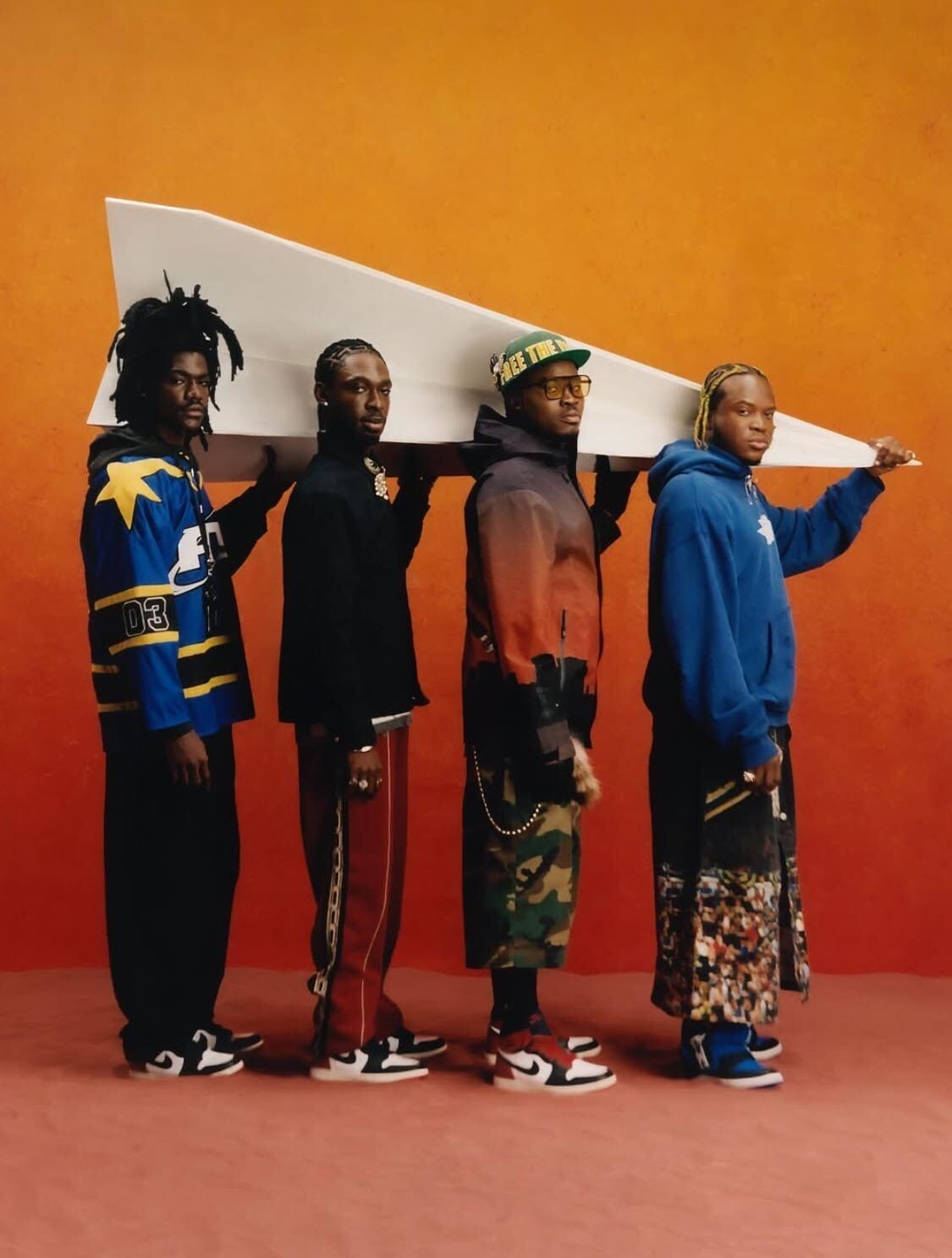
Could care culture be part of the solution?
There’s no doubt of the toll that the diminishing of minority safeguards has had on the collective mental health of certain communities. Collaborating with, or even kickstarting, community hubs for the targeted support and relief of minority communities can be a valuable way for brands to show their active engagement with diversity and inclusion.
A centrepiece of Toby Shorin’s “care culture” focuses on identifying centres as emerging “social forms” of wellbeing. These can exist as hybrid hubs - a community that is part clinic, part church, and part educational facility, offering healing and moral vision, with inspiration from ashrams and YMCAs.
Beyond the buzzwords: alternative diversity strategies
- Unconscious bias training
- Anonymised interview processes
- Going outside of your audience via partners for hiring processes
- Sponsorship programmes
- Micro coaching for managers
- Reframe DEI language
- Integrate DEI into leadership & business strategy
Brands doing it right
It's difficult to pinpoint certain brands who are engaging with DEI in a meaningful and genuine way. While many companies make public commitments or run one-off campaigns, these efforts often lack depth, consistency, or long-term accountability. Gen Z is demanding more than performative gestures; they want transparency, measurable action, and sustained impact, so here are a few brands that we think do DEI right.
Dove (Unilever) - exposing how AI-generated images reinforce beauty stereotypes and exclude diversity
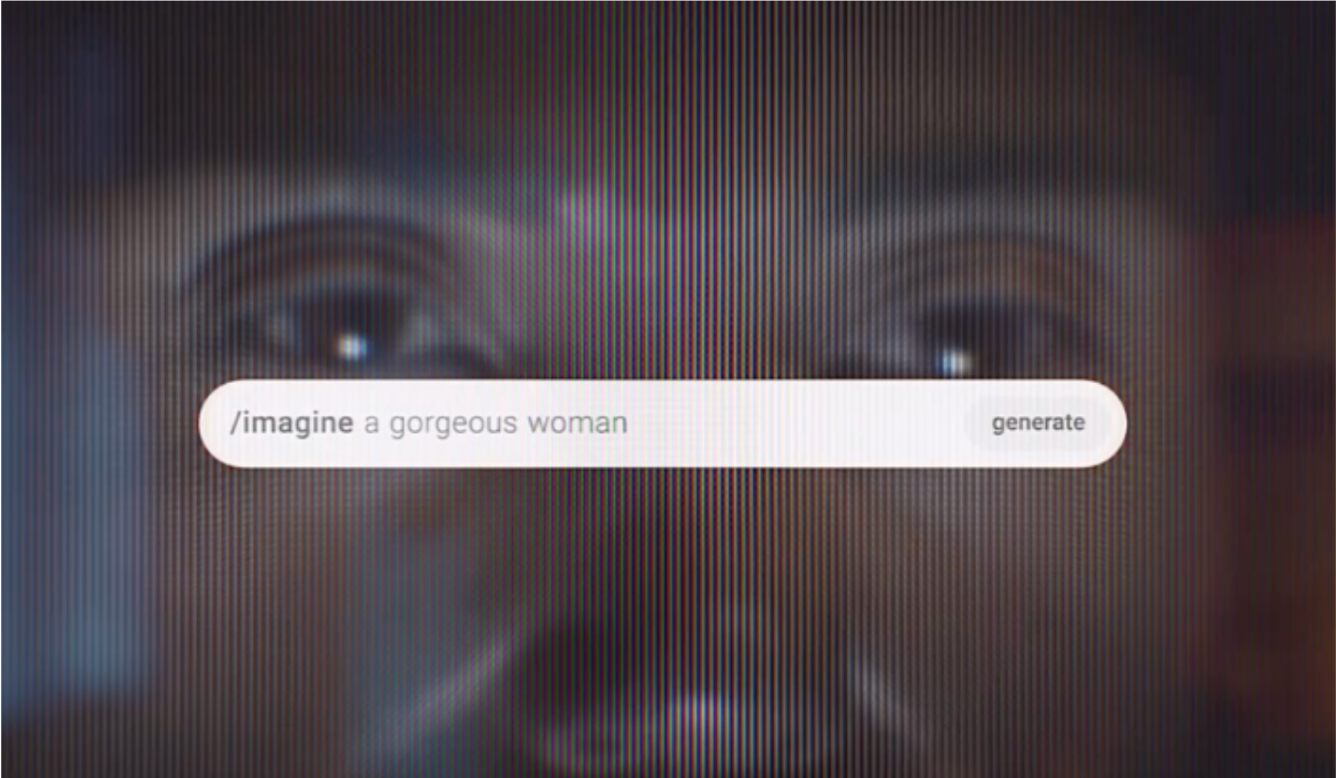
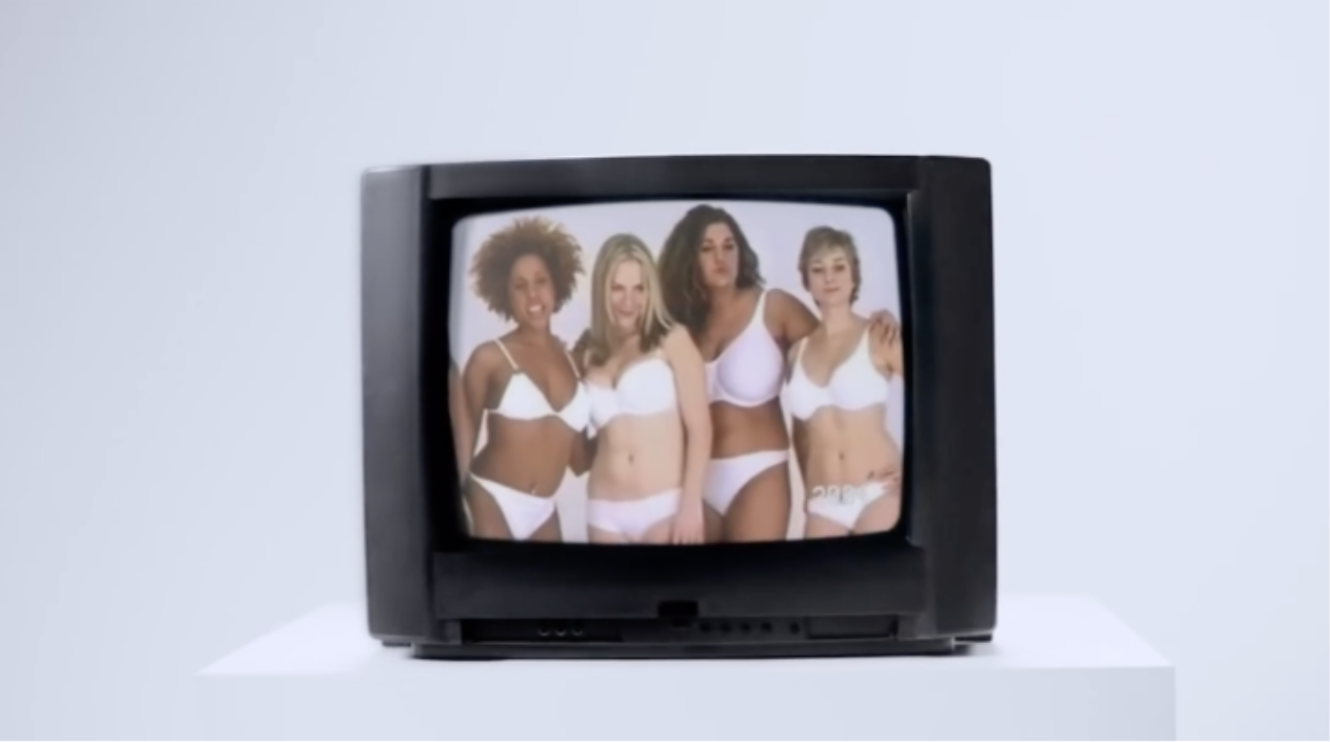
Dove's 2024 campaign, “The Code,” highlighted diversity’s importance in the AI revolution. It aimed to show “real beauty,” given that Dove’s research has shown that almost 90% of women and girls have been exposed to harmful beauty content online, and one in three feel pressured to alter their appearance because of what they see, even when they know it’s AI-generated.
The BFI - encouraging diverse hiring practices
The British Film Institute (BFI) has a mandatory framework for BFI funding and BAFTA/BIFA eligibility that encourages representation across protected characteristics, socioeconomic background, disability, and more. This initiative aims to steer UK film/TV towards lasting equity.
APG - promoting diversity in data
AI is a hidden sphere where unconscious racial bias can creep in, altering the data and insights strategists employ to forecast trends and devise approaches.
APG included DEI principles when evaluating AI tools for strategists. Encouraged AI usage to: Avoid bias in research, Include diverse perspectives in strategic planning, Promoted inclusive AI literacy across the strategy community.
What does DEI mean for brand loyalty?
According to McKinsey’s 2020 Diversity Wins report, companies with greater ethnic and cultural diversity on executive teams are 36% more likely to outperform competitors on profitability. 2018 research from the Boston Consulting Group also found that organisations with diverse leadership see up to 19% higher innovation revenue.
Campaigns land better when they reflect real life, and diversity is a large part of our social fabric. Ads with representative casting deliver higher engagement and brand customer loyalty, particularly amongst the LGBTQIA+ community.
Most importantly, however, is that for brands looking to maintain relevance with younger consumers, the case is even clearer. Edelman’s 2024 Trust Barometer reveals that 64% of Gen Z base purchasing decisions on a brand’s stance on social issues, including inclusion and equality.
Might be of interest
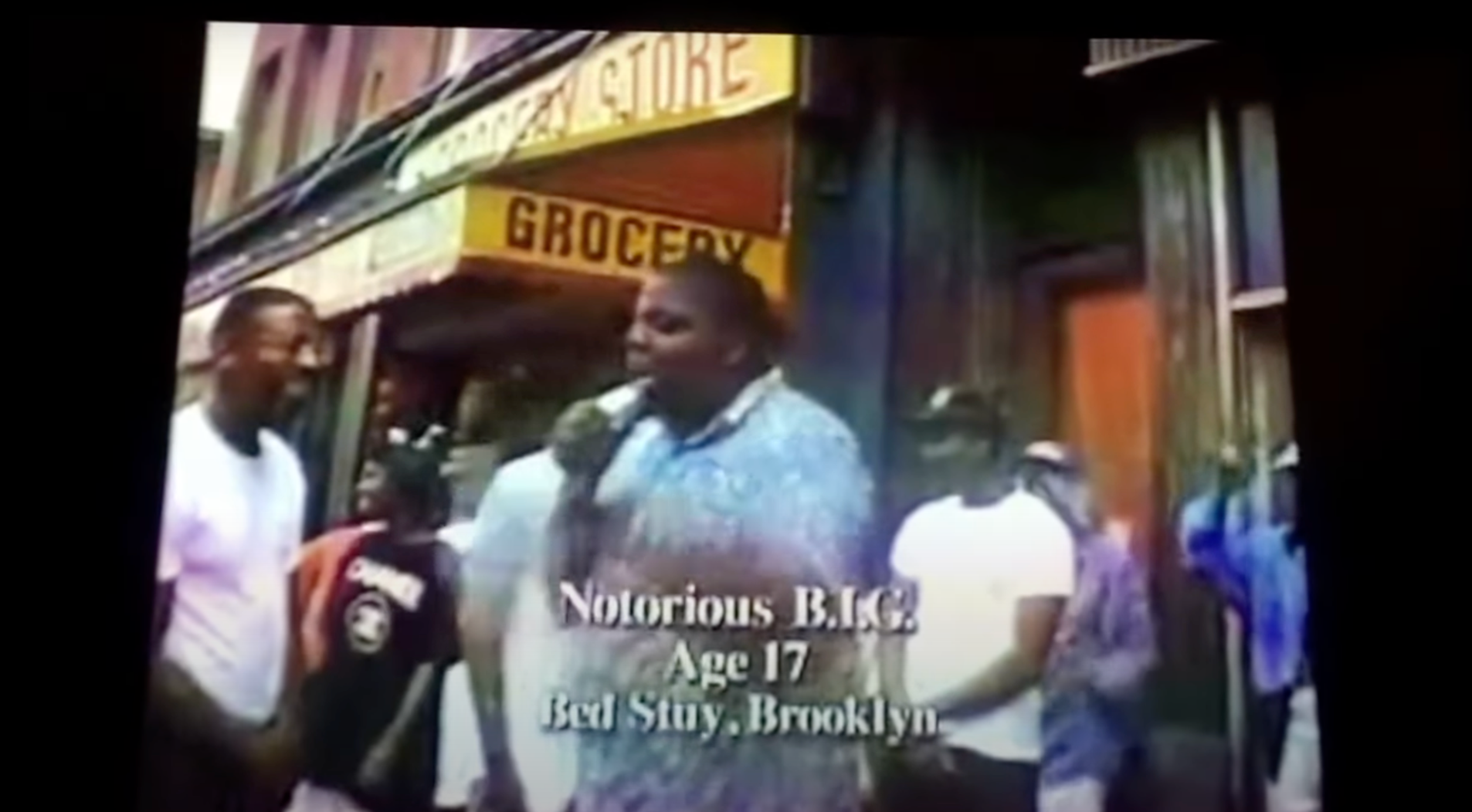
Arthur Jafa’s Love is the message, the message is Death, 2016
*TW: this video includes footage of racism-fuelled violence*


